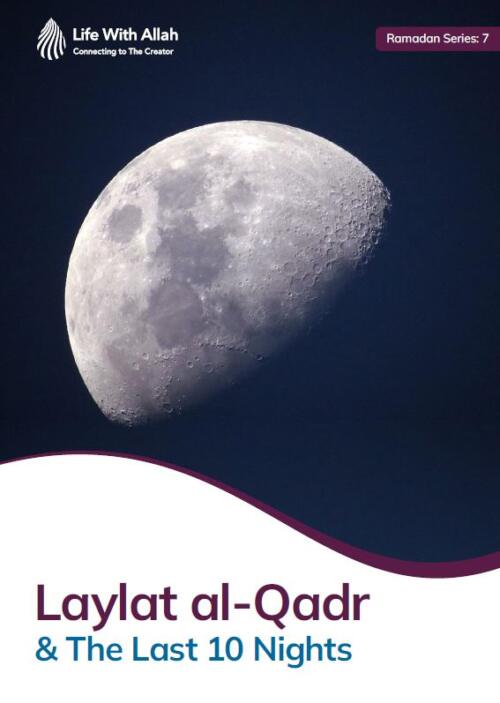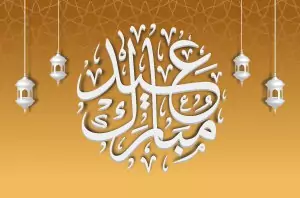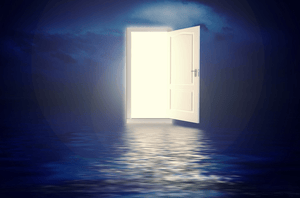Dismayed by the evil and immorality around him, he finds himself drifting away from his kinsmen, wishing more and more to be alone. Ascending the mountains around his town, he retreats to a small cave. From here, he is still able to see the House of Allah, built by his grandfather, the imām of tawḥīd: Ibrāhīm (ʿalayhis-salām). He takes food along with him, and spends several days in this cave in isolation: reflecting, pondering, and worshipping.
And then one night, everything changes. The stillness and silence of the night is interrupted by one word: “Read!” The greatest of men – unbeknown to him at the time- has just experienced his first encounter with the greatest of all angels. It marks the beginning of Allah’s greatest gift to mankind: His very own words. Words of eternal guidance, instructing man how to live and prosper. A blueprint to attain eternal bliss.
This night will change the entire course of history. The world will never be the same again.
More than a thousand years later, we commemorate this incredible night. It is the mother of all nights, a night of blessings and forgiveness, a night of closeness and intimacy with one’s Creator.
From His deep love and generosity, Allah al-Akram (The Most Generous) named this night for us (‘Laylat al-Qadr’), and revealed a sūrah dedicated to it. This is so that we do not ever forget the greatness of this Night, the greatness of this gift (the Qur’ān), the greatness of the angel (Jibrīl) responsible for its transmission, the greatness of the man (Muḥammad ﷺ) upon whose heart the book was revealed, and ultimately the greatness of the Greatest: Allah, Magnificent and Exalted is He!
Step Up In The Last 10 Days
ʿĀ’ishah (raḍiy Allāhu ʿanhā) said, “The Messenger of Allah ﷺ would combine both prayer and sleep (at night) during the first 20 (days of Ramaḍān). But when the last ten days arrived, he would exert himself in worship and stay away from his wives” (Aḥmad).
The last ten nights of Ramaḍān are for intensive worship. Just as the Messenger ﷺ used to cut himself off from people and perform iʿtikāf in the masjid, we too should try to do the same. We should take off as many days as possible from work and use this time to connect deeply with Allah (ʿazza wa jall). We should avoid wasting this precious time with Eid preparations, and switch off from social media.
Along with ourselves, we should have a deep concern for the spiritual well-being and upliftment of our families. The atmosphere in the home during these days, and especially the nights, should be different. ʿĀ’ishah (raḍiy Allāhu ʿanhā) said, “When the last ten days of Ramaḍān arrived, the Prophet ﷺ would tighten his waist belt (stay away from his wives/strive hard), spend the night in worship, and awaken his family” (Bukhārī).
10 Tips For The Last 10 Days of Ramadan
- Switch off social media and don’t surf the internet.
- Don’t waste time with Eid preparations.
- Give sadaqah (charity) every day.
- Push yourself to worship Allah.
- Perform Iʿtikāf.
- Perform at least ʿIshā and Fajr (at the minimum) in congregation.
- Perform qiyām in the night.
- Constantly ask Allah for forgiveness and freedom from the Hellfire.
- Strive in every potential night and recite the Sunnah duʿā.
- Bathe, apply perfume and adorn yourself for this great night.
“When the race horse knows that it is nearing the end of the track it exerts all of its effort to win the race. Do not allow the race horse to be cleverer than you. Indeed, deeds are judged by their conclusions. Thus, if you didn’t do well with welcoming Ramadān then perhaps you will do better bidding it farewell.” Ibn al-Jawzī (raḥimahullāh)
What is Laylat al-Qadr?
There is an entire sūrah in the Qur’ān dedicated to this one night. This shows its great importance and virtue.
Allah, al-ʿAẓīm (The Magnificent), says:
إِنَّآ أَنْزَلْنَـٰهُ فِيْ لَيْلَةِ الْقَدْرِ ( 1) وَمَآ أَدْرَىٰكَ مَا لَيْلَةُ الْقَدْرِ (2) لَيْلَةُ الْقَدْرِ خَيْرٌ مِّنْ أَلْفِ شَهْرٍۢ (3) تَنَزَّلُ الْمَلَـٰٓئِكَةُ وَالرُّوْحُ فِيْهَا بِإِذْنِ رَبِّهِمْ مِّنْ كُلِّ أَمْرٍۢ (4) سَلَـٰمٌ هِىَ حَتَّىٰ مَطْلَعِ الْفَجْرِ (5)
“Indeed, We sent this (Qur’ān) down on the Night of Qadr. And what will make you realise what the Night of Qadr is? The Night of Qadr is better than a thousand months. The angels and the Spirit (Jibrīl) descend in it, by the permission of their Lord, for every matter. It is Peace — until the rising of the dawn” (97:1-5).
Let us reflect on this sūrah to help us understand the significance of this incredible night:
Ayah 1
إِنَّآ أَنْزَلْنَـٰهُ فِيْ لَيْلَةِ الْقَدْرِ
Indeed, We sent this (Qur’ān) down on the Night of Qadr.
This Night is special as it marks one of the most magnificent events in history: the first revelation of the Qur’ān. Even if we worshipped Allah for a thousand years, it would not be enough to appreciate and thank Him for this favour.
Ibn ʿAbbās (radiy Allāhu ʿanhumā) said that the Qur’ān was revealed in its entirety from the highest heaven to the lowest heaven, and was subsequently revealed to Muḥammad ﷺ over the span of twenty-three years.
Qadr could refer to:
1) Honour and nobility. It is a noble night as the Qur’ān descended in it, Allah’s noble angels descend in it, and the mercy of Allah descends on the entire earth. A noble angel (Jibrīl (ʿalayhis-salām)) was chosen to descend with a Noble Book – the words of the Entirely Noble- upon the heart of the most noble man. Allah (ʿazza wa jall) states, “Indeed, We sent it down on a blessed night…” (44:3). Likewise, the one who worships Allah on this night is noble and honoured by His Lord.
2) Decree. The angels descend with the allotted decree of each person for the next year. Allah (ʿazza wa jall) says, “On that night every matter of wisdom is ordained” (44:4).
3) Constraint and congestion. This could refer to the earth becoming restricted as angels fill up the earth, and there is no room for any evil. The Messenger of Allah ﷺ said, “Indeed there are more angels on the earth on that night than the number of pebbles (on the earth)” (Ibn Khuzaymah). It could also allude to the specific identity of this night being unknown (‘constrained’).
There is a significance of the Qur’ān being revealed at ‘night’, as opposed to the day. Elsewhere in the Qur’ān, Allah says,
– “Limitless in His glory is He who transported His servant by night from the Sacred Mosque [in Makkah] to the Aqṣā Mosque [in Jerusalem] (17:1);
– And pray during a part of the night, offering additional prayers, so your Lord may raise you to a station of praise (17:79);
– Indeed, rising by night (for prayer) makes for a stronger impression (on the soul), and is best for the recitation (of Allah’s words) (73:6).”
These verses indicate a strong connection between worship at night and enjoying a lofty rank in the sight of Allah. At night, when one sacrifices the comfort of their sleep and company of their spouse, and instead turns towards His Creator, his heart brimming with His love and trembling from His fear, he is closer to receiving the exclusive outpourings of Allah’s mercy and light. In the stillness of the night, the heart is calmer, distractions are limited, and one is able to absorb the weighty message of the Lord of Majesty and Nobility. Allah (ʿazza wa jall) descends to the lowest heaven every night when one-third of the night remains and says, “Who will call upon Me, that I may answer Him? Who will ask of Me, that I may give him? Who will seek My forgiveness, that I may forgive him?” (Bukhārī).
Ayah 2
وَمَآ أَدْرَىٰكَ مَا لَيْلَةُ الْقَدْرِ
And what will make you realise what the Night of Qadr is?
‘Mā adrāka (what will make you realise)’ is a powerful rhetorical question which draws our attention to the importance of this night. We can never fully appreciate the greatness of this night. It is something which we should not take for granted.
Ayah 3
لَيْلَةُ الْقَدْرِ خَيْرٌ مِّنْ أَلْفِ شَهْرٍۢ
The Night of Qadr is better than a thousand months.
Worshipping Allah in this one night is not just equivalent to a thousand months (more than 83 years), but even better than that. Allāhu Akbar! Look at the kindness of Allah! We struggle to worship Him for more than few hours, let alone spend a major portion of our lives in worshipping Him – and yet, from His immense generosity, He gifts us with Laylat al-Qadr. Not once in our lifetime, but once every year throughout our time on this earth.
“The Messenger ﷺ was shown the lifespans of the people before him, or what Allah willed of that; and it was as if he thought that the lifespan of his ummah was short, and they would be unable to reach the level of deeds as others before them had due to their long lives. Thus, Allah gave him Laylat al-Qadr, which is better than a thousand months.” (Muwaṭṭa’)
The average lifespan of this ummah is between 60 and 70 years. Despite such short lives however, Allah blessed us that we are able to gain the rewards of worshipping Him for many lifetimes. Just as every deed is potentially multiplied by ten, this one night brings with it immeasurable rewards, blessings and goodness.
Our beloved Prophet ﷺ said, “In it, Allah has a night which is better than a thousand months. Whoever is deprived of its good is truly deprived!” (Nasā’ī).
Juwaybir (raḥimahullāh) said: “I asked Ḍaḥḥāk, ‘Do women experiencing post-natal bleeding and menstruation, those travelling, and those asleep (due to illness) have a share of Laylat al-Qadr?’ He replied, ‘Yes. Whoever’s deeds Allah accepts, He will give them their share of Laylat al-Qadr.’”
Ayah 4
تَنَزَّلُ الْمَلَـٰٓئِكَةُ وَالرُّوْحُ فِيْهَا بِإِذْنِ رَبِّهِمْ مِّنْ كُلِّ أَمْرٍۢ
The angels and the Spirit (Jibrīl) descend in it, by the permission of their Lord, for every matter.
Ibn Kathīr (raḥimahullāh) wrote, “The angels descend in abundance during this night due to its abundant blessings. The angels descend with blessings and mercy, just as they descend when the Qur’ān is recited and surround the gatherings of dhikr.”
Allah announces the decree of the upcoming year to His angels on this Night, as they will be carrying out His commandments. This includes births, deaths, provisions and calamities.
The earth is full of goodness and blessings on this night, as there are a huge number of angels filling up the entire earth.
The ‘spirit’ refers to Jibrīl (ʿalayhis-salām), the greatest of all angels, the link between the heavens and the earth, the angel tasked with the most prestigious job: conveying the message of the Creator to His creation. This is the only time of the year in which he ascends to the earth. We can only imagine how blessed this night is.
It is difficult to appreciate the spiritual and physical greatness of Jibrīl. He has 600 wings. If he was to unroll a pair of them, it would fill the space between the sky and the earth. Allah describes him as an angel of ‘mighty power, and great perfection’ (53:5-6).
Ayah 5
سَلَـٰمٌ هِىَ حَتَّىٰ مَطْلَعِ الْفَجْرِ
It is Peace — until the rising of the dawn.
‘Salām’ (Peace) could mean that this night is full of peace. All of it is good and there is safety from all harm and evil until dawn. As the earth is full of angels, there is goodness and peace throughout the earth.
It has also been said that angels greet (say salām to) the believers. They pray for the protection, and the removal of evil and harm, for every slave who is worshipping Allah.
When is Laylat al-Qadr?
The Prophet ﷺ said, “Seek out Laylat al-Qadr in the odd nights of the last ten (days) of Ramaḍān” (Bukhārī).
Abū Bakrah (raḍiy Allāhu ʿanhu) said regarding Laylat al-Qadr, “I am not searching for it except in the last ten nights only after something which I heard the Messenger of Allah ﷺ say. He ﷺ said: ‘Search for it (Laylat al-Qadr) in the last ten nights: the 21st, 23rd, 25th, 27th or the last night’” (Aḥmad).
There are various opinions as to what date exactly is Laylat al-Qadr, and whether it changes every year.
A wisdom of the date being unspecified is that we strive hard to seek it and worship Allah wholeheartedly in many of the nights, instead of limiting our worship to one night. This is similar to how the hour of acceptance on Jumuʿah has been left unspecified, to encourage us to fill the day with duʿā’.
“If (the night before) Friday coincides with one of the odd-numbered nights during the last ten nights, then it is likely than others (to be Laylat al-Qadr).” (Ibn Rajab quoting Ibn Hubayrah in Latā’if al-Maʿārif)
Best Deed For Laylat al-Qadr: Qiyam
The Messenger of Allah ﷺ said, “Whoever stands in prayer at night (qiyām) in Laylat al-Qadr with īmān and hoping for reward (iḥtisāb), all his previous sins will be forgiven” (Bukhārī).
The best deed a person can perform on Laylat al-Qadr is qiyām. We should perform it with:
(1) īmān i.e. with a firm belief that Allah has asked us to do this, loves this deed and will reward us;
(2) iḥtisāb i.e. seek reward only from Allah, perform it sincerely for Him alone, and not for any other motive.
Qiyām (night prayer) is one of the best acts of worship. In ṣalāh, we combine reciting and reflecting on the Qur’ān, praising and remembering Allah, duʿā’, and turning to Him in repentance. It is an act wherein we worship Allah with the tongue, body and heart simultaneously.
The duration of the night is short. However, the blessing of this short time can be multiplied by infusing quality into our ʿibādah. We should renew our intention, and humble our hearts before Allah. We should perform qiyām with full khushūʿ (humility and full focus), lengthening each posture, and crying to Allah in sujūd.
Click here for tips on how to read with khushūʿ.
At the bare minimum, we should perform ʿIshā’ and Fajr at the masjid. ʿAbdurraḥmān b. Abī ʿAmrah said: ʿUthmān b. ʿAffan (raḍiy Allāhu ʿanhu) entered the Masjid after the Maghrib prayer, and sat down by himself. So, I went and sat by him, and he said, “O my nephew, I heard the Messenger of Allah ﷺ saying, ‘Whoever performs ʿIshā’ in congregation, then it is as though he has stood half the night (in prayer). And whoever performs Fajr in congregation, then it is as though he has prayed the entire night’” (Muslim).
5 things to do in Laylat al-Qadr
The night begins at sunset. Do not miss out on the time between Maghrib and ʿIshā’.
- Pray Maghrib, ʿIshā’ and Fajr in congregation, and be there before the first takbīr.
- Pray qiyām (night prayer) for as long as you can.
- Recite Qur’ān and do dhikr.
- Make abundant duʿā’, especially in sajdah.
- Make sincere repentance & conclude the night with istighfār.
On this night, we should take time out to reflect on the enormity of what occurred on this Night over 1400 yaers ago. Let us feel humbled that Allah chose us to be amongst the ummah of Muḥammad ﷺ, and the recipients of His magnificent words; that He granted us the incredible gift of the Qur’ān. Let us feel regret on our neglect of the Qur’ān: our failure to recite it, understand it, reflect on it and ‘live’ it. Let us realise the damage we have caused our souls, and our societies, by failing to establish its guidance. Let us ask Allah to help us build a strong relationship with the Qur’ān from this Night onwards. Let us beg Allah to make us from His chosen people: the People of the Qur’ān.
Duʿa’ for Laylat al-Qadr
ʿĀ’ishah (raḍiy Allāhu ʿanhā) asked the Messenger of Allah ﷺ, “If I know which night is the Night of Qadr, what do you think I should say during it?” He ﷺ replied,
اَللّٰهُمَّ إِنَّكَ عَفُوٌّ تُحِبُّ الْعَفْوَ فَاعْفُ عَنِّيْ
O Allah, You are the Ever-Pardoning, You love to pardon so pardon me (Tirmidhī).
Forgiving us is more beloved to Allah than punishing us. This duʿā’ fits beautifully here, as this night is the night of forgiveness. Moreover, after many days of intense worship, this duʿā’ is a reminder to not become deceived with our (few) good deeds. Rather, we are sinful, have many shortcomings, and desperately need Allah to forgive us. Yāhyā b. Muʿādh (raḥimahullāh) said, “The one whose deepest hope from Allah is not forgiveness, does not truly know Allah.”
We ask Allah in this duʿā with His Beautiful Name, Al-ʿAfuww. Al-ʿAfuww is the one who wipes away sins and forgives our shortcomings. Whilst Allah’s Name ‘al-Ghafūr’ also means The Forgiving, al-ʿAfuww is more than that. Al-ʿAfuww is the one who completely removes all traces and consequences of our sins. He wipes them away from the records of the angels: He will not hold us to account for them on the Day of Judgement, nor will He remind us of them to make us feel guilty.
This is why we ask Him in this duʿā’ with His Name ‘al-ʿAfuww’ to forgive us and fully wipe our slates clean.
Laylat al-Qadr is a night of forgiveness. Just as Allah loves to forgive and pardon us, He also loves for us to forgive each other. Sometimes we may think we have forgiven someone, but the negativity in our hearts linger and resurfaces in a passive-aggressive manner. Allah says, “…Let them pardon and forgive. Do you not love to be forgiven by Allah? And Allah is All-Forgiving, Most Merciful” (24:22).
Beg Allah For Freedom From The Hell-fire
Our beloved Prophet ﷺ said, “Indeed Allah has freed slaves (from Hell) every day and night (in Ramaḍān), and every servant amongst them has a supplication which is answered” (Aḥmad).
Throughout these nights, we should pour our hearts out and cry to Allah in sajdah. We should beg Allah to free us from the Hell-fire:
اَللهم أَعْتِقْ رِقَابَنَا مِنَ النَّارِ
O Allah, free us from the Hell-fire.
Bathe, apply perfume & wear nice clothes for this great night.
Many of our predecessors went out of their way to adorn and prepare themselves for these amazing nights. Ibrāhīm al-Nakhaʿī (raḥimahullāh) would bathe in each of the ten nights. In the night in which he’d hoped it was Laylat al-Qadr, Thābit al-Bunānī (raḥimahullāh) would wear his best clothes, apply perfume and use fragrance in the masjid. Imām Mālik (raḥimahullāh) used to bathe, apply perfume and would wear a special outfit for this blessed night. In the morning, he would fold them away, and not wear them till the following year.
Just as we should adorn ourselves for Allah externally, we should adorn ourselves internally through repentance. We should keep seeking forgiveness to wipe away the dirt of our sins. Ibn Rajab (raḥimahullāh) reminds us that on this night, we should adorn ourselves externally through our clothes, and internally through taqwā.
As the best night of the year comes to an end, let us end it in the best way: by humbling ourselves and seeking forgiveness, as Allah describes the pious,
وَبِالْأَسْحَارِ هُمْ يَسْتَغْفِرُوْنَ
“And they would seek forgiveness before dawn” (51:18).






